The sculptural beauty of the ancient communal house is closely associated with the Cuong Temple Festival.
(Baonghean.vn) - With its long history, Xuan Ai communal house is not only a historical relic associated with the Cuong Temple Festival, but also an ancient structure with beautiful carvings.
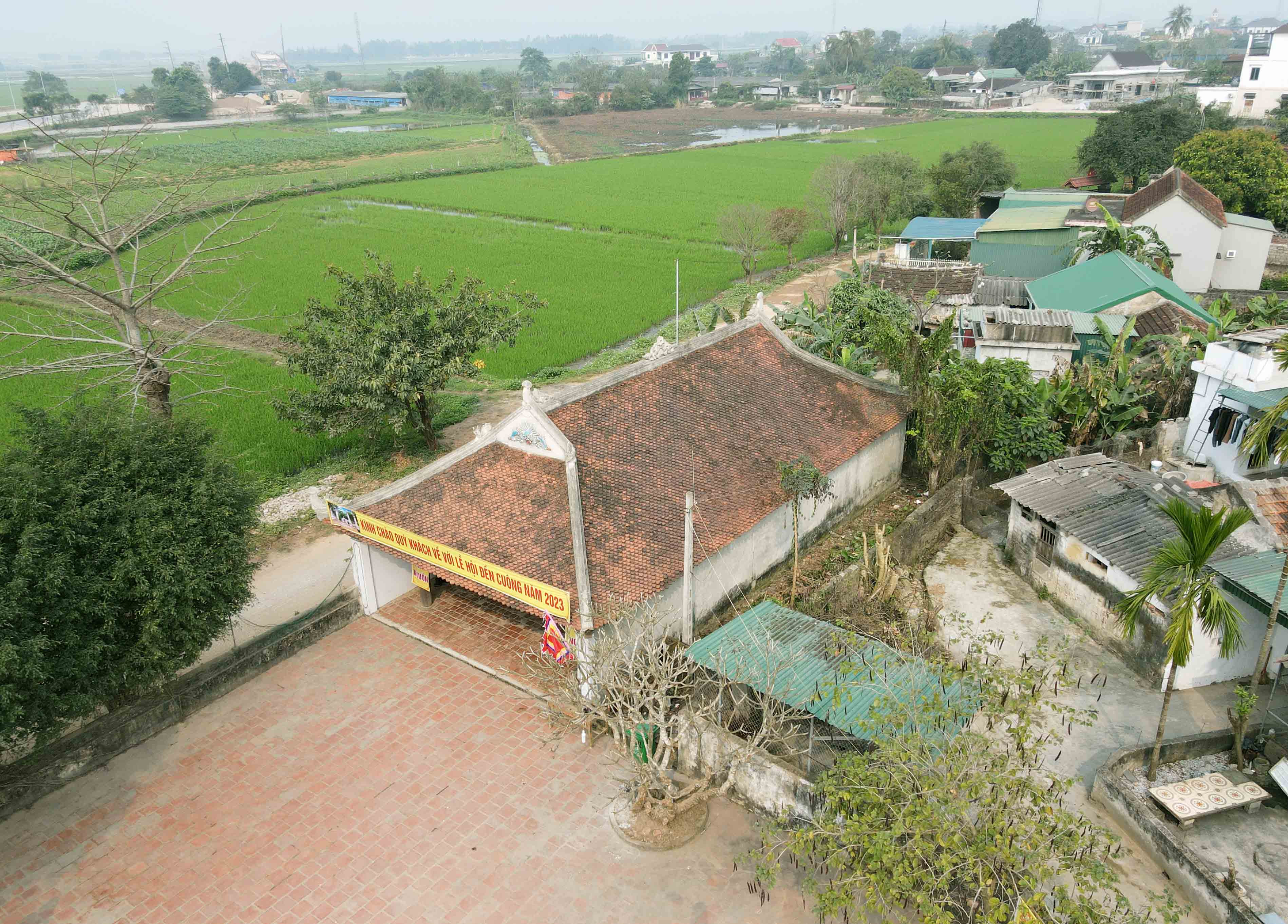 |
| According to local elders, Xuan Ai communal house was built during the Nguyen dynasty and has been renovated many times. Previously, the ancient communal house was located in the center of the village, now in Hamlet 3, Dien An commune. Photo: Huy Thu |
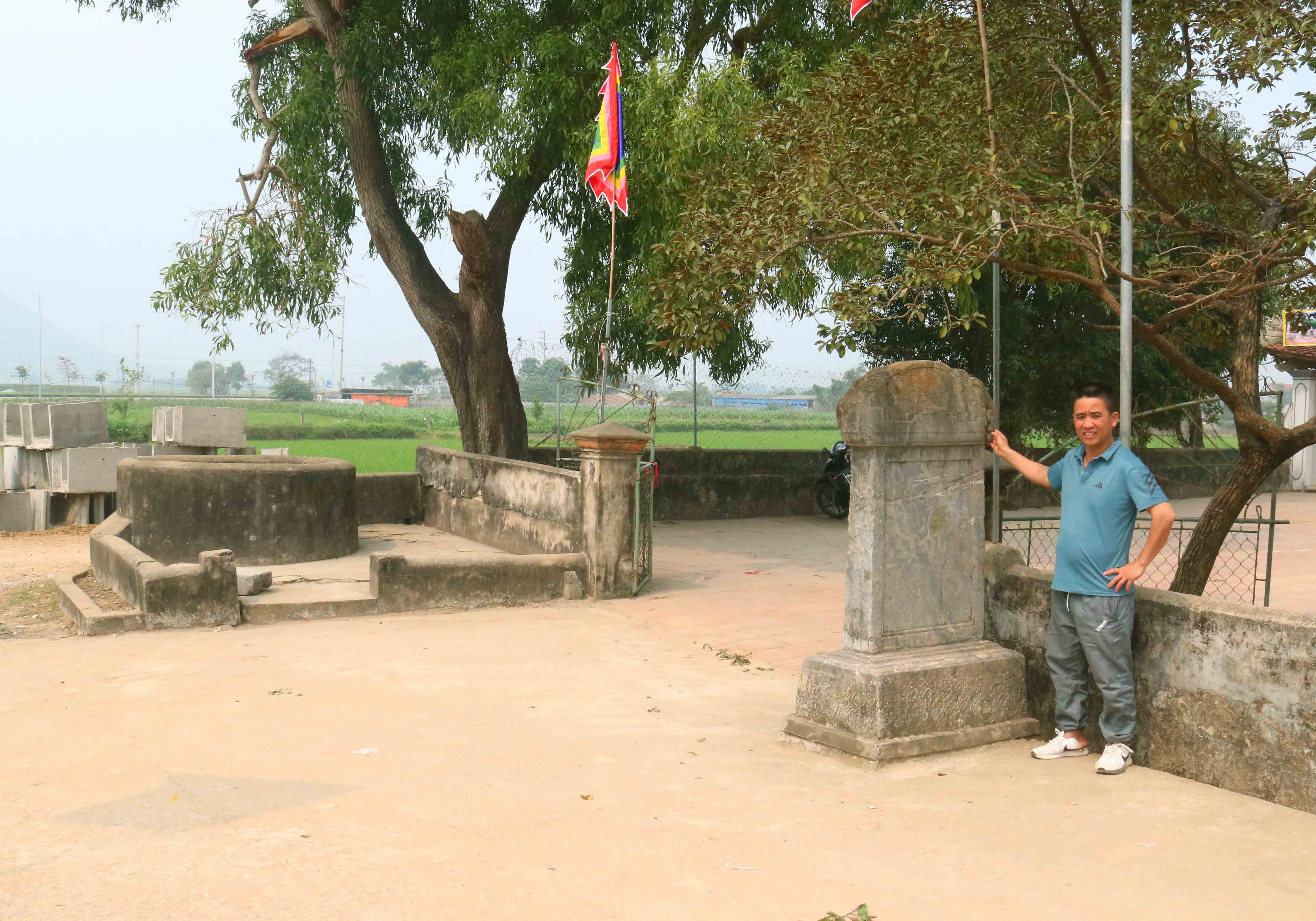 |
| In front of the communal house is a well that used to provide water for the local people, but it has now been renovated. Next to the well is an ancient stone stele, about 1.8 meters high. According to local people, the communal house used to have a beautiful gate, which later collapsed but was not restored. Photo: Huy Thu |
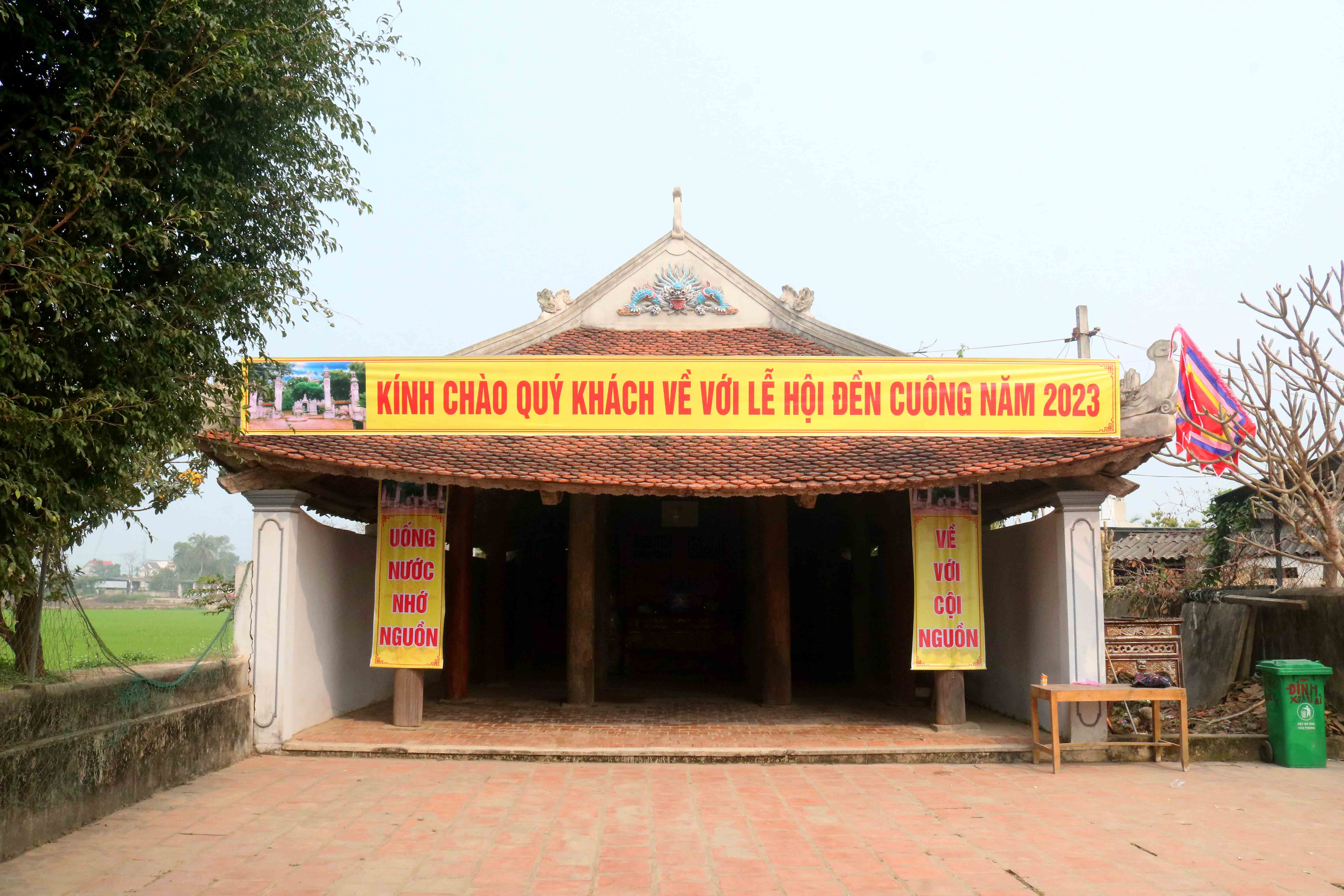 |
| The Xuân Ái communal house is a three-bay, two-gable structure built in the traditional wooden house style. During recent renovations, some damaged wooden structures were replaced, but the original architecture has been preserved. Photo: Huy Thư |
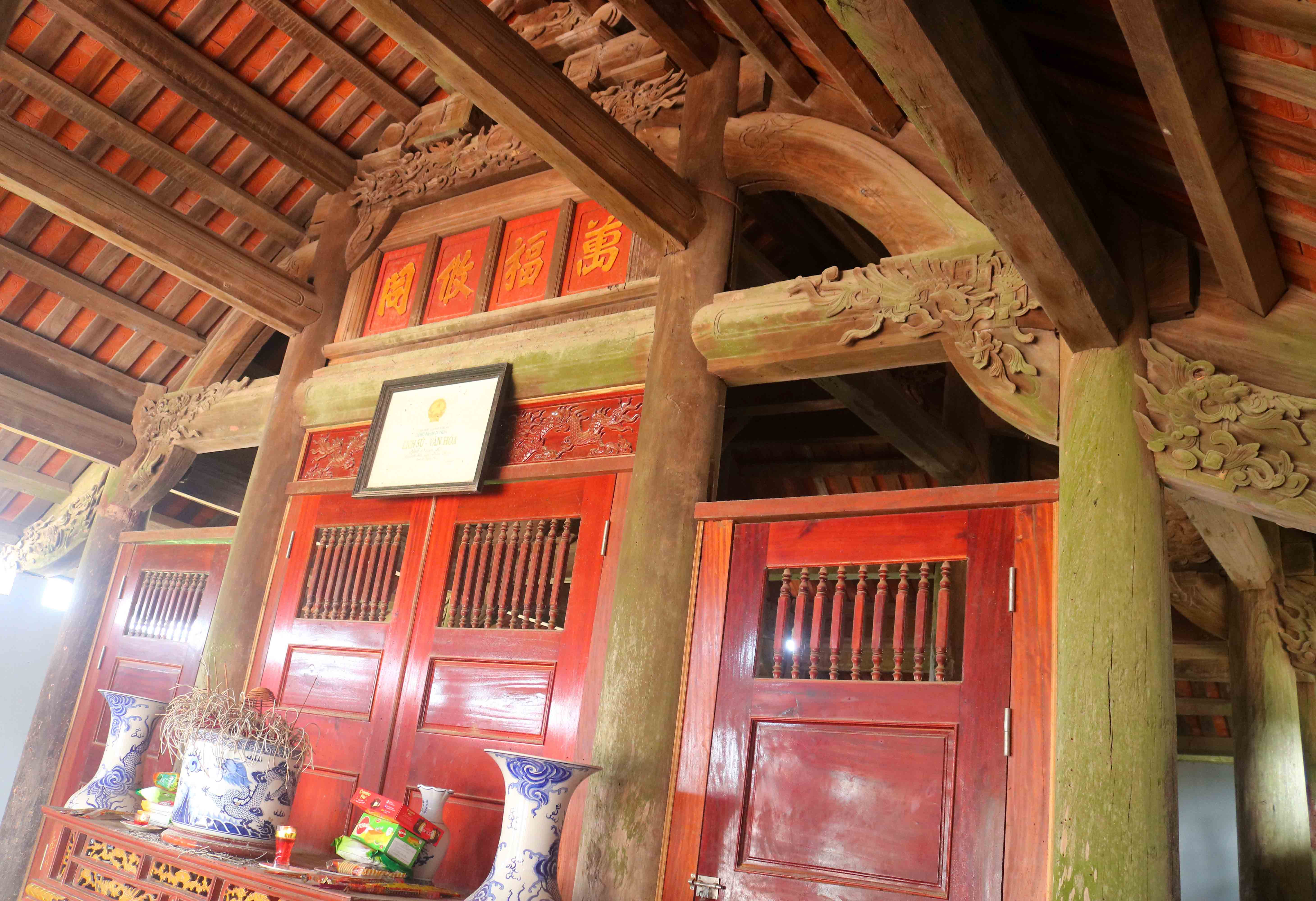 |
| Compared to many ancient communal houses, Xuan Ai communal house differs not only in its longitudinal structure, but also in the fact that the main hall is divided into two worship areas. This is because the second section of the communal house is constructed with wooden planks from bottom to top, except for the two side passageways connecting to the third section. Photo: Huy Thu |
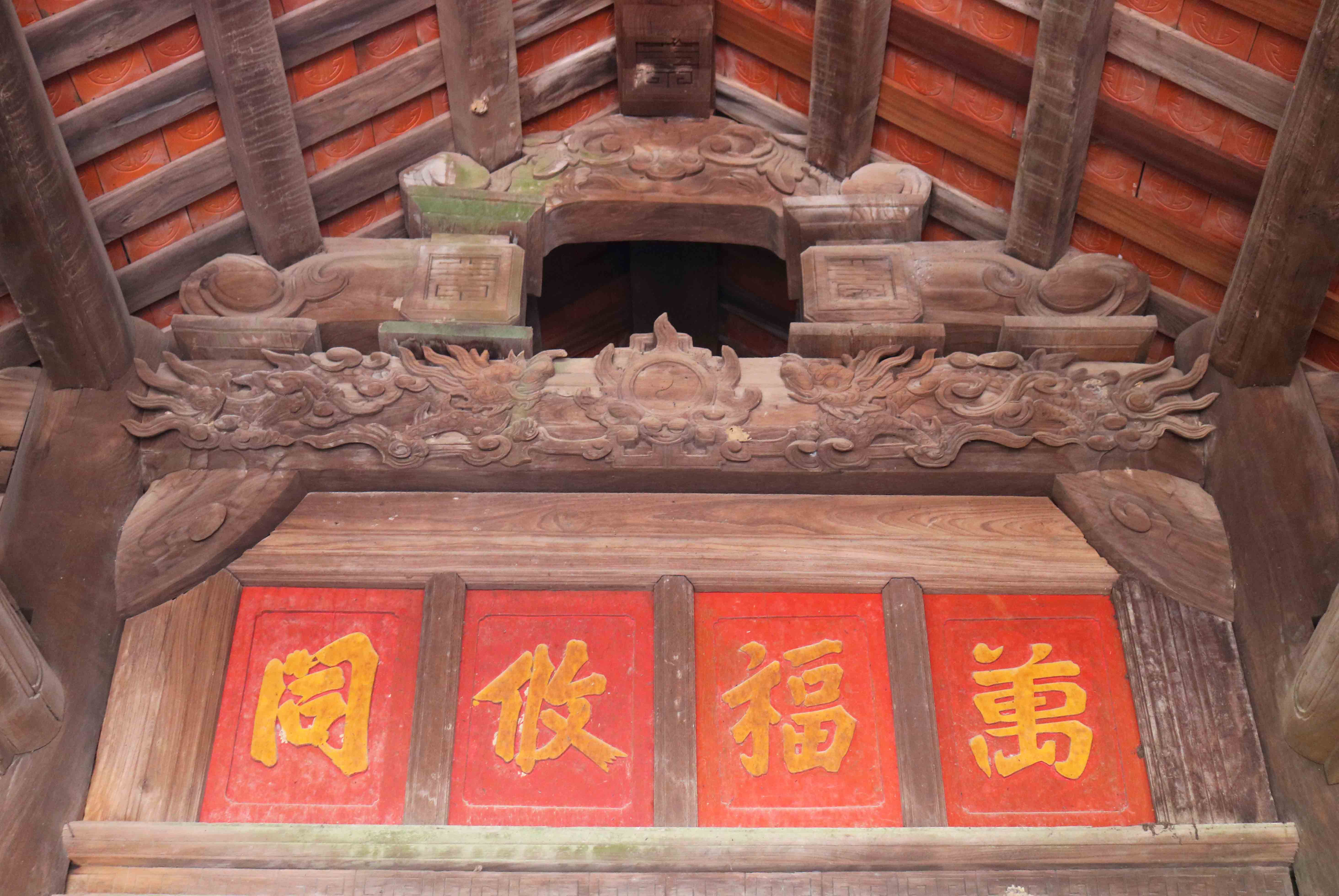 |
| The roof of this pavilion is elaborately decorated. The central panel and the headboard are carved with four large Chinese characters: "Wan-fu-you-tong" (meaning "ten thousand blessings, ten thousand blessings"). The outer surface of the headboard is intricately carved with the image of "two dragons facing the moon". The ridge and supporting beams are all carved with floral motifs, and the tiger faces are stylized in a graceful manner. Photo: Huy Thu |
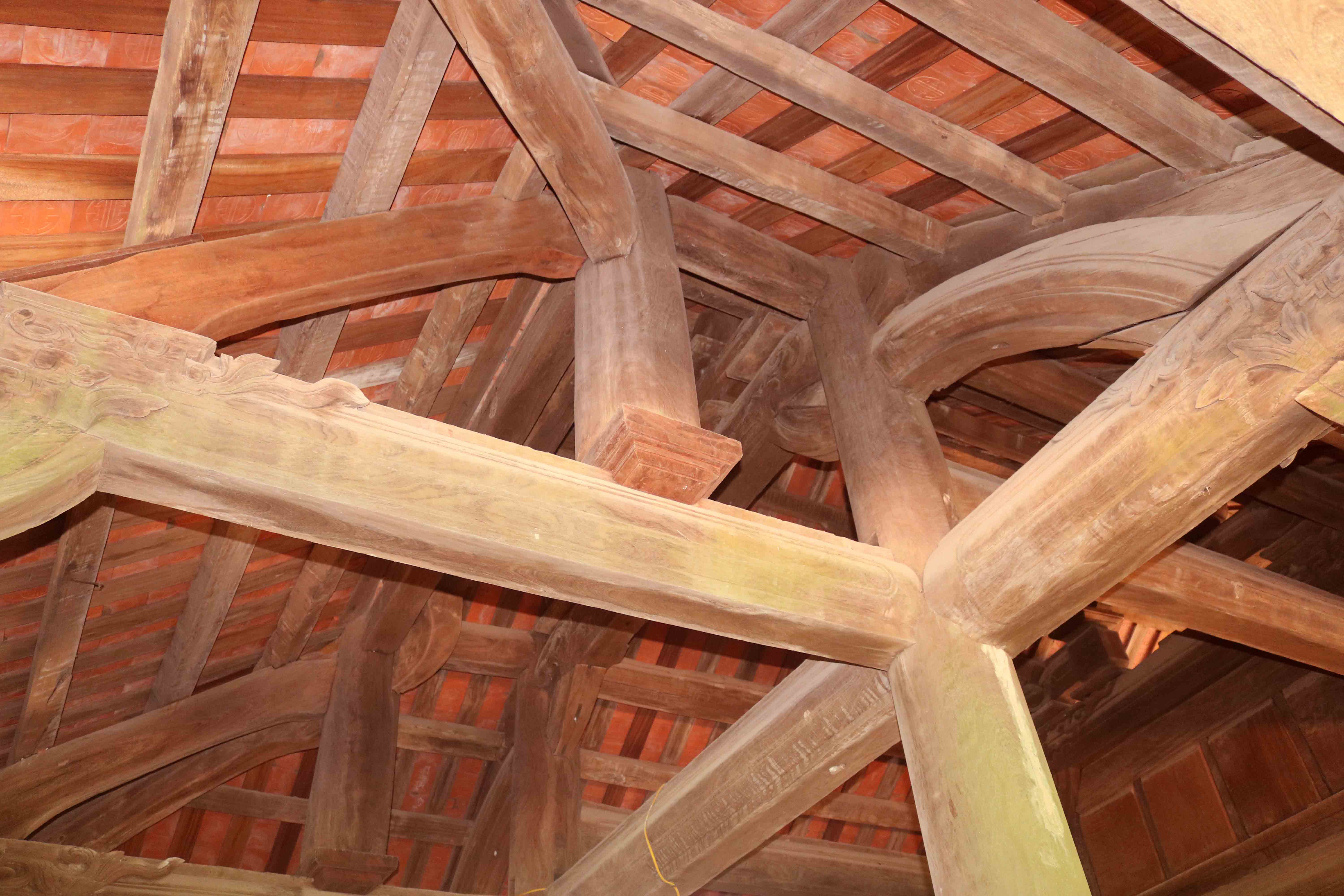 |
| The two end bays of the communal house are designed with four supporting columns resting on longitudinal beams to raise the roof, widening the bays and creating a unique gable structure. This type of gable structure is commonly found in communal houses built during the Nguyen dynasty. Photo: Huy Thu |
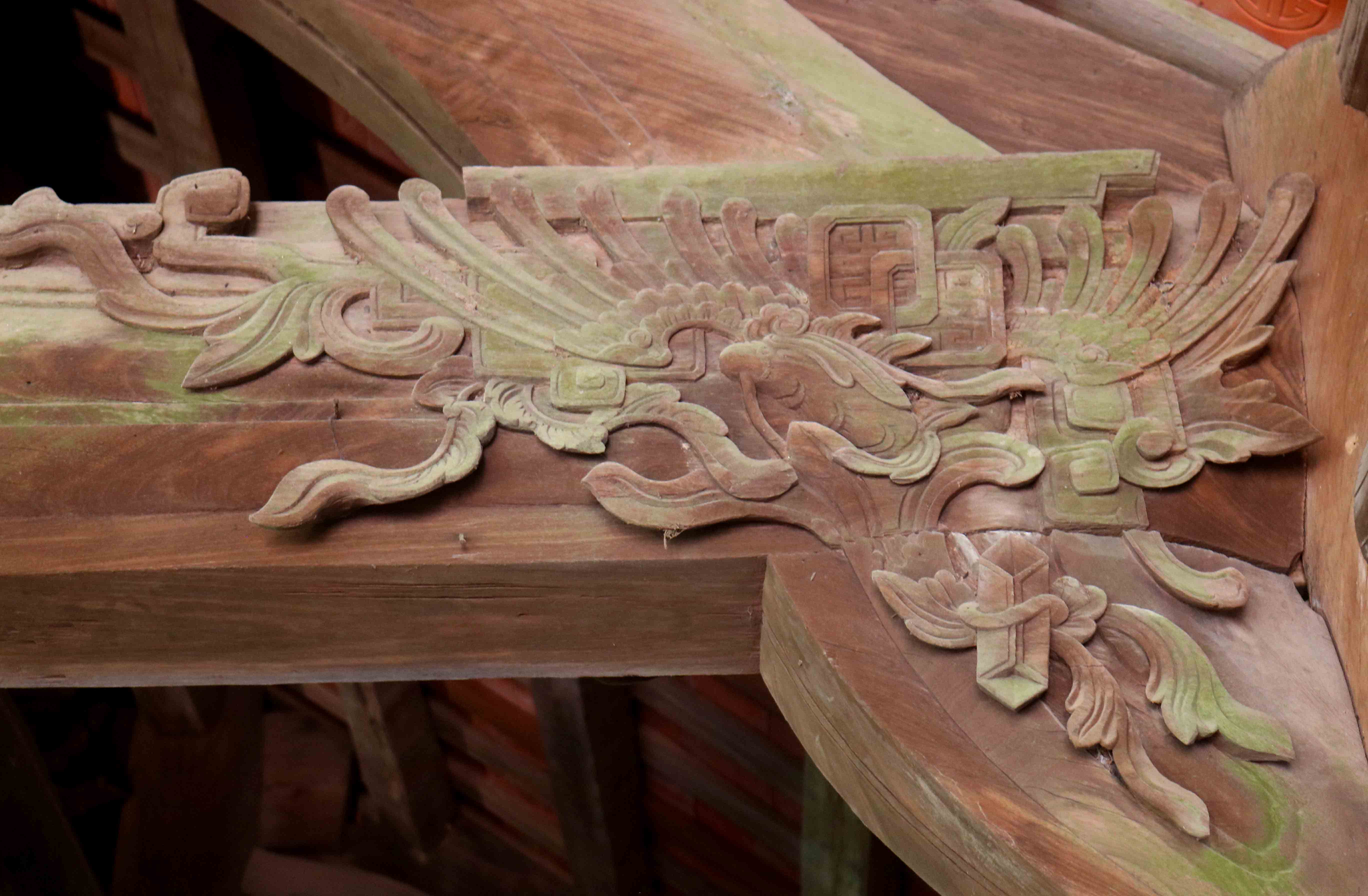 |
| The lower part of the pavilion is adorned with vivid carvings of "dragon-horse" and "phoenix dance" motifs. The image of the phoenix with its wings spread wide, wearing the character for longevity, holding a branch in its beak, and carrying a scroll on its feet is quite exquisite. Photo: Huy Thu |
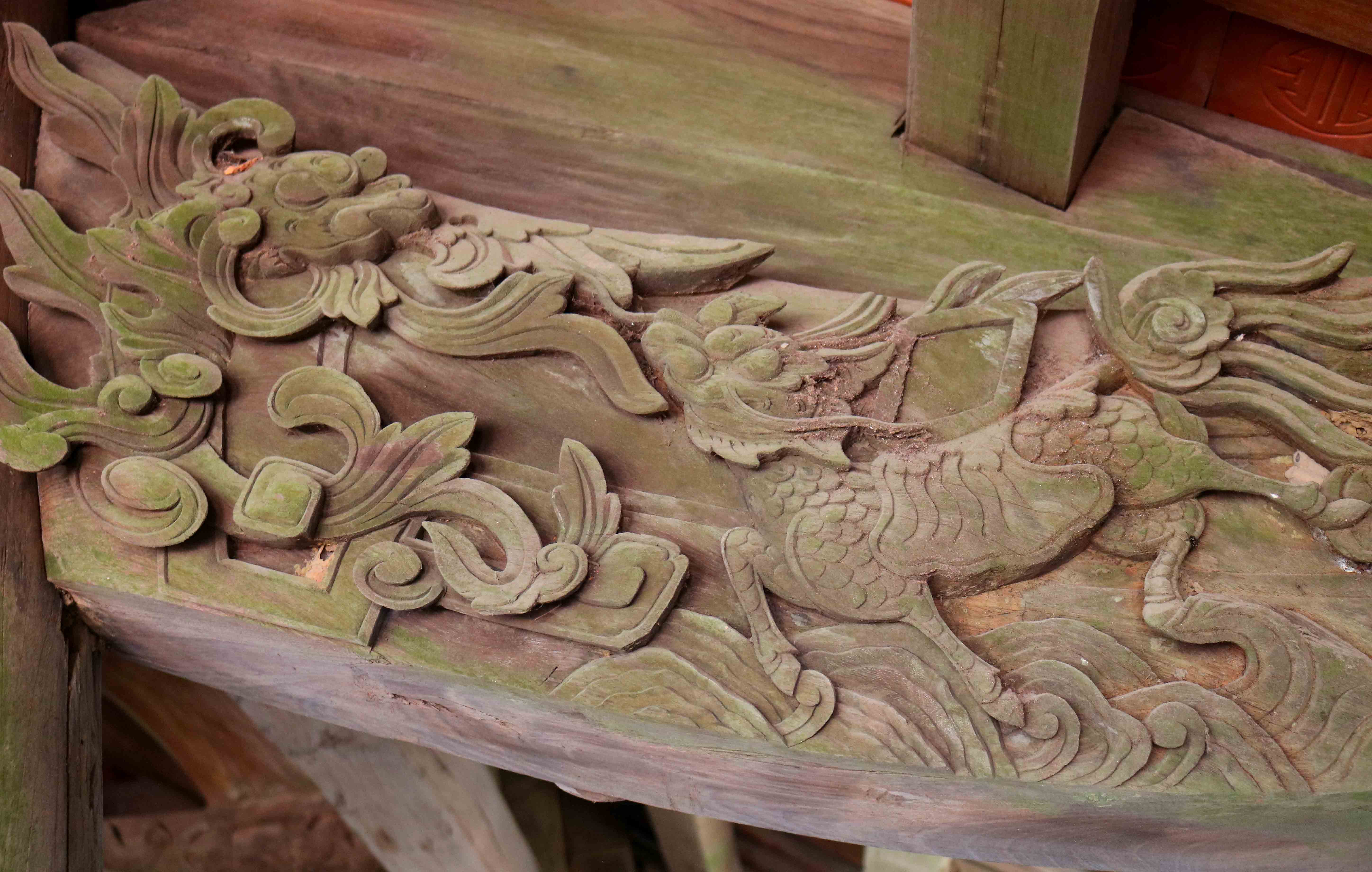 |
| Particularly on both sides of the front and back beams, there are elaborate carvings depicting traditional themes such as lotus flowers, dragons, phoenixes, clouds, rain, and "dragon-horses." Because the wooden frame of the temple is left untouched, the carvings are covered in dust and mold, and many are no longer intact. Photo: Huy Thu |
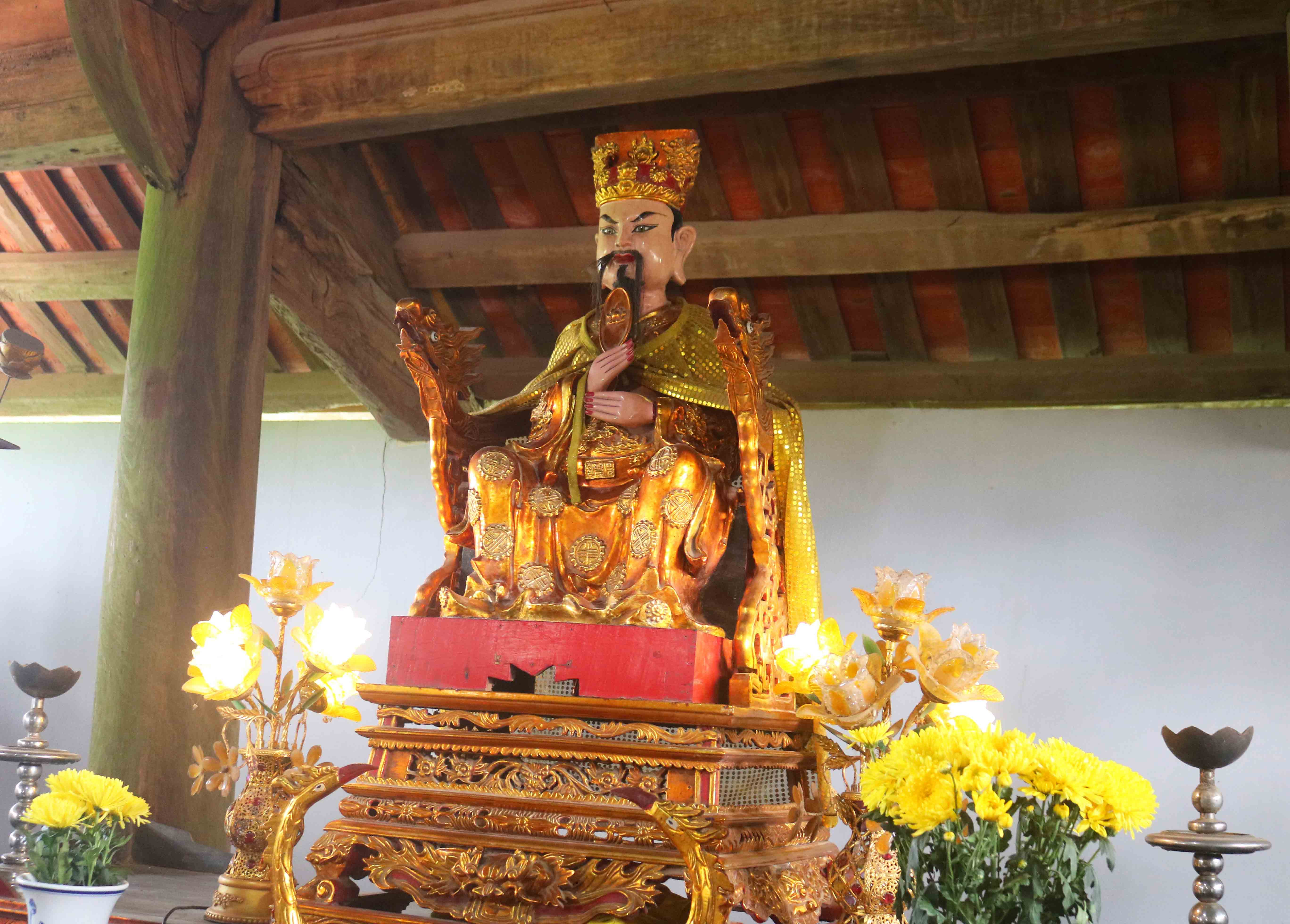 |
| Xuan Ai communal house was recognized as a historical and cultural relic by the Provincial People's Committee in 2002. Mr. Hoang Cong Truong, Chairman of the Dien An Commune People's Committee, said: "Previously, the communal house was a place for villagers to gather, and later a place for the hamlet to socialize. Since the communal house was recognized as a historical relic, it has only been used to worship the tutelary deity, hold ceremonies, offer incense on important holidays, and for sightseeing..." (In the photo: Statue of the deity worshipped in the last section of Xuan Ai communal house. Photo: Huy Thu) |
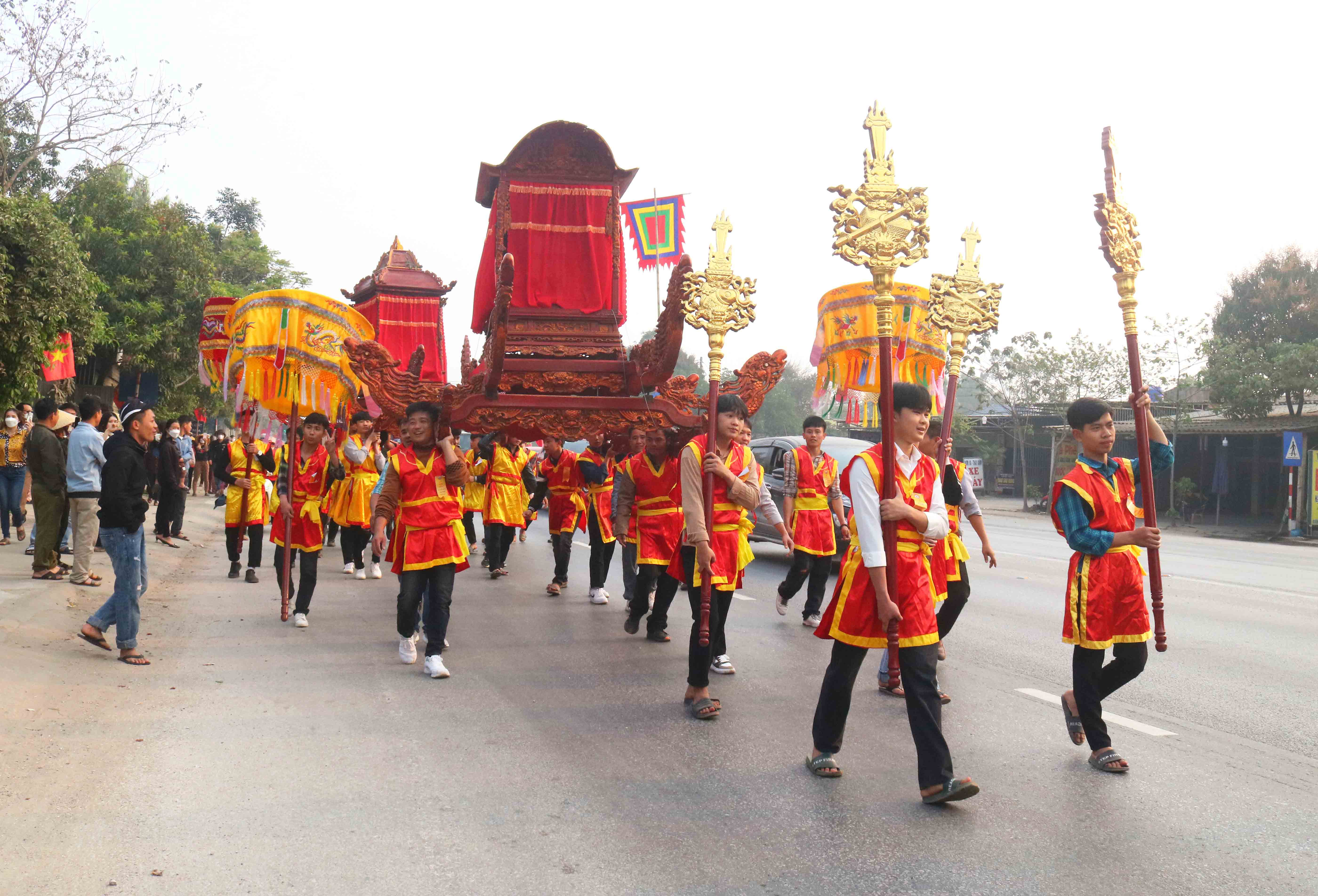 |
| Since ancient times, Xuan Ai communal house has been associated with the Cuong Temple Festival. Each festival, starting from the afternoon of the 14th day of the first lunar month, a procession from Cuong Temple carries the palanquins of King An Duong Vuong and Princess My Chau to the communal house for the ritual of worshiping the gods (in the past, Cao Ai communal house was the place where the rituals of worshiping the gods of four villages: Cao Quan, Cao Ai, Tap Phuc, and Yen Phu were held). On the morning of the 15th day of the first lunar month, the procession, complete with music, flags, umbrellas, and palanquins, carries the King, Princess, and village guardian deities to Cuong Temple for the joint worship ceremony. Photo: Huy Thu |



